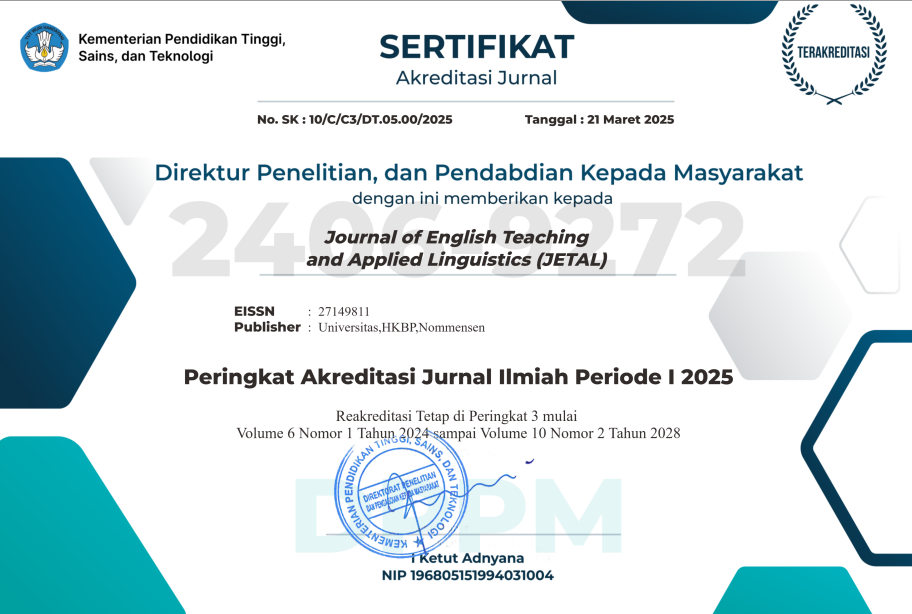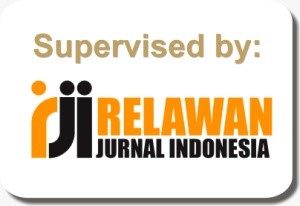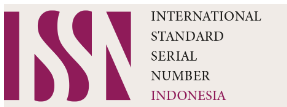The Implementation of Context, Input, Process, Product Evaluation Model for Assessing Educational Programs
Abstract
The objective of this study is to undertake a critical examination of the implementation of the CIPP (Context, Input, Process, Product) evaluation model in junior high school educational programs. This examination will be facilitated through a systematic review of 51 studies published between 2015 and 2024. Utilizing a systematic literature review (SLR) approach, this research explores the application contexts, theoretical frameworks, scholarly debates, as well as the practical implications and limitations of using the CIPP model across various educational sectors. The present study utilizes a primary instrument in the form of a data categorization checklist based on the four components of the CIPP model. The data were collected through systematic access to digital journal databases, such as Scopus, with articles filtered based on specific keywords according to inclusion criteria. The selection of articles was conducted in accordance with the PRISMA flow, encompassing the phases of identification, screening, eligibility assessment, and final inclusion. Thematic analysis was employed to code and interpret the content of the selected studies, with a focus on the type of program, evaluation approach, CIPP dimensions analyzed, and key findings. The findings indicate that the CIPP model has been extensively adopted due to its comprehensive and adaptable structure, which effectively assesses the planning, execution, and outcomes of educational programs. The integration of authentic assessment and competency-based learning is a common practice, as it aligns with specific contextual needs. However, the review also identifies key limitations, including the predominance of quantitative methods, uneven geographic distribution of studies, and limited exploration of technology integration.
References
Agus, A., Juliadharma, M., & Djamaluddin, M. (2023). Application of the CIPP Model in Evaluation of The Inclusive Education Curriculum in Madrasah Aliyah. Nidhomul Haq : Jurnal Manajemen Pendidikan Islam, 8(1), 31–50. https://doi.org/10.31538/ndh.v8i1.2705
Al-Shanawani, H. M. (2019). Evaluation of Self-Learning Curriculum for Kindergarten Using Stufflebeam’s CIPP Model. SAGE Open, 9(1). https://doi.org/10.1177/2158244018822380
Aleandri, G. (2015). Autobiography as Educational Scientific Tool in Penitentiary. Procedia - Social and Behavioral Sciences, 197(February), 4–9. https://doi.org/10.1016/j.sbspro.2015.07.038
Basaran, M., Dursun, B., Gur Dortok, H. D., & Yilmaz, G. (2021). Evaluation of Preschool Education Program According to CIPP Model. Pedagogical Research, 6(2), em0091. https://doi.org/10.29333/pr/9701
Chong, D. Y. K., Tam, B., Yau, S. Y., & Wong, A. Y. L. (2020). Learning to prescribe and instruct exercise in physiotherapy education through authentic continuous assessment and rubrics. BMC Medical Education, 20(1), 1–11. https://doi.org/10.1186/s12909-020-02163-9
Chong, E. J. M., Lim, J. S. W., Liu, Y., Lau, Y. Y. L., & Wu, V. X. (2016). Improvement of learning domains of nursing students with the use of authentic assessment pedagogy in clinical practice. Nurse Education in Practice, 20, 125–130. https://doi.org/10.1016/j.nepr.2016.08.002
Darma, I. K. (2019). The effectiveness of teaching program of CIPP evaluation model. International Research Journal of Engineering, IT & Scientific Research, 5(3), 1–13. https://doi.org/10.21744/irjeis.v5n3.619
Dwi, Y. R., Haryono, & Florentinus, T. S. ; (2018). The Evaluation of the CIPP Model in The Implementation of Character Education at Junior High School. Innovative Journal of Curriculum and Educational Technology, 7(2), 65–77.
El Khammari, N., & Hasnaoui, R. (2025). Evaluation of the Impact of Educational Programs at Secondary School: Systematic and Bibliometric Review of Literature. Educational Process: International Journal, 15. https://doi.org/10.22521/edupij.2025.15.141
Farrell, C. (2020). Do international marketing simulations provide an authentic assessment of learning? A student perspective. International Journal of Management Education, 18(1), 100362. https://doi.org/10.1016/j.ijme.2020.100362
Gandomkar, R. (2018). Comparing Kirkpatrick’s original and new model with CIPP evaluation model. Journal of Advances in Medical Education & Professionalism, 6(2), 94–95.
Gerayllo, S., Vakili, M., Jouybari, L., Moghadam, Z., Jafari, A., & Heidari, A. (2025). Using the CIPP Model to elicit perceptions of health professions faculty and students about virtual learning. BMC Medical Education, 25(1), 1–12. https://doi.org/10.1186/s12909-025-06747-1
Hakan, K., & Seval, F. (2011). CIPP evaluation model scale: Development, reliability and validity. Procedia - Social and Behavioral Sciences, 15, 592–599. https://doi.org/10.1016/j.sbspro.2011.03.146
Heard-Lauréote, K., & Buckley, C. (2025). Building trustful relationships through intrapreneurship in Academic Development. Journal of Learning Development in Higher Education, 33. https://doi.org/10.47408/jldhe.vi33.1177
Huang, M., He, Z., Zhang, J., Deng, Z., & Tang, D. (2025). Course Evaluation of Advanced Structural Dynamics Based on Improved SAPSO and FAHP. Buildings, 15(1), 1–22. https://doi.org/10.3390/buildings15010072
Ismail, S. M., Nikpoo, I., & Prasad, K. D. V. (2023). Promoting self-regulated learning, autonomy, and self-efficacy of EFL learners through authentic assessment in EFL classrooms. Language Testing in Asia, 13(1). https://doi.org/10.1186/s40468-023-00239-z
Jang, J. H., Noh, Y., & Kim, J. S. (2025). Validation of a Digital Human-Based Safety Education Framework for Migrant Construction Workers in Korea Using the CIPP Model and a Modified Delphi Study. Sustainability (Switzerland), 17(1), 1–18. https://doi.org/10.3390/su17010169
Jopp, R. (2020). A case study of a technology enhanced learning initiative that supports authentic assessment. Teaching in Higher Education, 25(8), 942–958. https://doi.org/10.1080/13562517.2019.1613637
Keenan, K. M., & Stewart-Wells, A. G. (2021). Moving Beyond Comprehensive Exams: Implementing Authentic Assessments to Enhance Doctoral Student Learning. Christian Higher Education, 20(1–2), 69–86. https://doi.org/10.1080/15363759.2020.1851815
Keinänen, M., Ursin, J., & Nissinen, K. (2018). How to measure students’ innovation competences in higher education: Evaluation of an assessment tool in authentic learning environments. Studies in Educational Evaluation, 58(May), 30–36. https://doi.org/10.1016/j.stueduc.2018.05.007
Kurucz, E., Spencer-Mueller, E. K., Hands, C., Gudz, N., & Archer, K. (2025). Co-constructing educational innovations for an uncertain future: Design thinking and developmental evaluation in the school reform process. Evaluation and Program Planning, 111(February), 102559. https://doi.org/10.1016/j.evalprogplan.2025.102559
Li, Y., & Hu, C. (2022). The Evaluation Index System of Teaching Quality in Colleges and Universities: Based on the CIPP Model. Mathematical Problems in Engineering, 2022. https://doi.org/10.1155/2022/3694744
Mohebi, S., Parham, M., Sharifirad, G., & Gharlipour, Z. (2018). Social Support and Self ‑ Care Behavior Study. January, 1–6. https://doi.org/10.4103/jehp.jehp
Molope, M., & Oduaran, A. (2020). Evaluation of the community development practitioners’ professional development programme: CIPP model application. Development in Practice, 30(2), 194–206. https://doi.org/10.1080/09614524.2019.1650894
Omid, A., & Avizhgan, M. (2024). Integrating a New Model of Community-Based Education in the General Medicine: An Evaluation Study. Journal of Health System Research, 20(3), 246–256. https://doi.org/10.48305/jhsr.v20i3.1552
Perry, N. E., Lisaingo, S., Yee, N., Parent, N., Wan, X., & Muis, K. (2020). Collaborating with teachers to design and implement assessments for self-regulated learning in the context of authentic classroom writing tasks. Assessment in Education: Principles, Policy and Practice, 27(4), 416–443. https://doi.org/10.1080/0969594X.2020.1801576
Rooholamini, A., Amini, M., Bazrafkan, L., Dehghani, M. R., Esmaeilzadeh, Z., Nabeiei, P., Rezaee, R., & Kojuri, J. (2017). Program evaluation of an Integrated Basic Science Medical Curriculum in Shiraz Medical School, Using CIPP Evaluation Model. Journal of Advances in Medical Education & Professionalism, 5(3), 148–154.
Salinas-Navarro, D. E., Vilalta-Perdomo, E., Michel-Villarreal, R., & Montesinos, L. (2024). Using Generative Artificial Intelligence Tools to Explain and Enhance Experiential Learning for Authentic Assessment. Education Sciences, 14(1). https://doi.org/10.3390/educsci14010083
Sokhanvar, Z., Salehi, K., & Sokhanvar, F. (2021). Advantages of authentic assessment for improving the learning experience and employability skills of higher education students: A systematic literature review. Studies in Educational Evaluation, 70(April), 101030. https://doi.org/10.1016/j.stueduc.2021.101030
Suharno, S., Pardiman, P., Harijanto, D., & Ashar, A. (2022). Monitoring Strategy and Evaluation of Education and Training Program with The CIPP Method. Nazhruna: Jurnal Pendidikan Islam, 5(3), 1228–1241. https://doi.org/10.31538/nzh.v5i3.2566
Suhonen, J., & Sutinen, E. (2022). Critical events and pivotal factors as tools for analyzing the sustainability of online study programs. Educational Technology Research and Development, 70(5), 1551–1573. https://doi.org/10.1007/s11423-022-10133-9
Suryana, D., Husna, A., & Mahyuddin, N. (2023). CIPP Evaluation Model: Analysis of Education Implementation in PAUD Based on Government Policy on Implementation of Learning During the Covid-19 Pandemic. Jurnal Obsesi : Jurnal Pendidikan Anak Usia Dini, 7(4), 4386–4396. https://doi.org/10.31004/obsesi.v7i4.3722
Tavani, M. E., Poursaki, T., & Gharibi, F. (2024). The Necessity of Promoting Technology Commercialization in Iran’s Universities of Medical Sciences: A Policy Brief. Koomesh, 26(1), 1–7. https://doi.org/10.69107/koomesh-153982
Tuna, H., & Başdal, M. (2021). Curriculum evaluation of tourism undergraduate programs in Turkey: A CIPP model-based framework. Journal of Hospitality, Leisure, Sport and Tourism Education, 29(October 2020), 1–9. https://doi.org/10.1016/j.jhlste.2021.100324
Warju, W. (2016). Educational Program Evaluation using CIPP Model. Innovation of Vocational Technology Education, 12(1), 36–42. https://doi.org/10.17509/invotec.v12i1.4502
Way, K. A., Burrell, L., D’Allura, L., & Ashford-Rowe, K. (2021). Empirical investigation of authentic assessment theory: An application in online courses using mimetic simulation created in university learning management ecosystems. Assessment and Evaluation in Higher Education, 46(1), 17–35. https://doi.org/10.1080/02602938.2020.1740647
Yazdani, N., & Moradi, M. (2017). Evaluation of the Quality of Undergraduate Nursing Education Program in Ahvaz Based on CIPP Evaluation Model. Sadra Medical Journal, 5(3), 159–172.
Zhao, T., Yu, L., Jiang, X., Yang, S., Zhang, X., Zhang, M., Zhang, Y., Yan, T., Wu, H., & Xu, F. (2025). Construction of a public health practice teaching quality evaluation system based on the CIPP model using the Analytic Hierarchy Process (AHP) and entropy weight method. BMC Medical Education, 25(1). https://doi.org/10.1186/s12909-025-06943-z

This work is licensed under a Creative Commons Attribution-ShareAlike 4.0 International License.
Authors retain copyright and grant the journal right of first publication with the work simultaneously licensed under a Creative Commons Attribution-ShareAlike 4.0 International License (CC BY-SA 4.0) that allows others to share the work with an acknowledgment of the work's authorship and initial publication in this journal.
Authors are able to enter into separate, additional contractual arrangements for the non-exclusive distribution of the journal's published version of the work (e.g., post it to an institutional repository or publish it in a book), with an acknowledgment of its initial publication in this journal.
Authors are permitted and encouraged to post their work online (e.g., in institutional repositories or on their website) prior to and during the submission process, as it can lead to productive exchanges, as well as earlier and greater citation of published work (See The Effect of Open Access).





